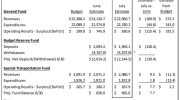HARTFORD, CT – In response to the ongoing developments regarding the COVID-19 outbreak and the need to protect residents of nursing home facilities, residential care homes, and chronic disease hospitals, Governor Lamont on Friday signed an executive order granting the commissioner of the Department of Public Health additional authority to restrict visitation at such facilities.
The order – Executive Order No. 7A – revises the nursing home visitation provisions in Executive Order No. 7, which the governor issued on Thursday. All of the other provisions of Executive Order No. 7 remain in effect. Both orders were issued to protect public health and safety pursuant to the civic preparedness and public health emergencies that Governor Lamont declared on March 10 in response to the outbreak.
Pursuant to Executive Order No. 7A, Department of Public Health Commissioner Renée D. Coleman-Mitchell has issued an order to nursing homes and long term care facilities that prohibits any visitation for the next 30 days effective immediately except for the following categories of individuals:
- First responders, including emergency medical services, law enforcement, firefighting and emergency management personnel;
- Family members, domestic partners or other persons designated by a patient only when the facility’s medical director, a licensed physician or advance practice registered nurse has determined such patient to be at the end stage of life with death being imminent;
- Any person authorized by law to oversee or investigate the provision of care and services; and
- Service providers who are required to do maintenance or repair necessary without delay for the facility’s continued operation.
Any individuals permitted access to the facility will need undergo a risk screening for COVID-19 by facility staff using appropriate Personal Protection Equipment (PPE) in accordance with CDC guidance documents.
Commissioner Coleman-Mitchell and all officials recognize the difficulty this poses for residents who want to visit with their loved ones. These restrictions are not imposed lightly, but they are absolutely critical to protecting the most vulnerable residents from a disease that poses a severe risk to their health and safety.










